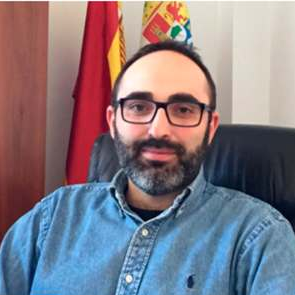Active Methodology and Sustainability for STEAM Education and Innovation in Formative Assessment
A special issue of Sustainability (ISSN 2071-1050). This special issue belongs to the section "Sustainable Education and Approaches".
Deadline for manuscript submissions: closed (31 July 2021) | Viewed by 32930
Special Issue Editors
Interests: sustainability; STEAM; teaching and learning; flipped classroom; affective domain; climate change; teacher training; ICT; E-learning; collaborative learning; fuzzy-MCDA; escape room; gamification; service learning; future classroom; inclusive learning
Special Issues, Collections and Topics in MDPI journals
Interests: science education; sustainable education; flipped methodology; science teaching methodologies; pre-service teaching education; affective domain in science and sustainable teaching; active teaching methodologies; STEM education
Special Issues, Collections and Topics in MDPI journals
Special Issue Information
Dear Colleagues,
With this Special Issue, titled “Active Methodology and Sustainability for STEAM Education and Innovation in Formative Assessments ”, we aim to highlight the necessary literature to attend to the challenges required to deliver appropriate information on science, technology, engineering, arts, and mathematics (STEAM) education to scholars and professionals of different educational degrees and practical areas. In particular, STEAM is either partially or fully a part of the curricula of many educational institutions, and has possible applications in various working disciplines. However, concerted attempts must be made regarding the correct employment and development of sustainability-oriented themes in order to achieve the Sustainable Development Goals (SDGs) in higher education institutes (HEIs) and fresh assessments, as well as in the ongoing challenges and tasks of formative assessment.
Therefore, with this Special Issue, we will publish articles, reviews, short notes, etc., on innovative and active approaches and advanced research in sustainable STEAM education and innovation in formative assessments. We will consider theoretical, methodological, and empirical research works on teaching and learning, competencies and assessment, policy, program development and implementation, instructor preparation, community- and project-based learning, institutional collaborations and partnerships, and other relevant subjects. Particular emphasis will be placed on innovative and active teaching/learning approaches and methodologies that have been substantiated to be relevant on sustainable STEAM education in formative assessment, not only considering the cognitive domain of the learning process, but also the affective domain, such as the flipped classroom, blended learning, escape rooms, gamification, virtual reality, eLearning, online learning, and service-learning.
Prof. Dr. Jin Su Jeong
Prof. Dr. David González-Gómez
Guest Editors
Manuscript Submission Information
Manuscripts should be submitted online at www.mdpi.com by registering and logging in to this website. Once you are registered, click here to go to the submission form. Manuscripts can be submitted until the deadline. All submissions that pass pre-check are peer-reviewed. Accepted papers will be published continuously in the journal (as soon as accepted) and will be listed together on the special issue website. Research articles, review articles as well as short communications are invited. For planned papers, a title and short abstract (about 100 words) can be sent to the Editorial Office for announcement on this website.
Submitted manuscripts should not have been published previously, nor be under consideration for publication elsewhere (except conference proceedings papers). All manuscripts are thoroughly refereed through a single-blind peer-review process. A guide for authors and other relevant information for submission of manuscripts is available on the Instructions for Authors page. Sustainability is an international peer-reviewed open access semimonthly journal published by MDPI.
Please visit the Instructions for Authors page before submitting a manuscript. The Article Processing Charge (APC) for publication in this open access journal is 2400 CHF (Swiss Francs). Submitted papers should be well formatted and use good English. Authors may use MDPI's English editing service prior to publication or during author revisions.
Keywords
- STEAM education
- Education innovation and technology
- Formative assessment
- Innovative teaching methodologies for sustainable STEAM education
- Sustainable Development Goals (SDGs)
- Active teaching methodologies
- Teaching/learning methodologies
- Gamification and escape room
- Sustainability and climate change
- Cognitive/affective domain research
- Teacher training and higher education.
Benefits of Publishing in a Special Issue
- Ease of navigation: Grouping papers by topic helps scholars navigate broad scope journals more efficiently.
- Greater discoverability: Special Issues support the reach and impact of scientific research. Articles in Special Issues are more discoverable and cited more frequently.
- Expansion of research network: Special Issues facilitate connections among authors, fostering scientific collaborations.
- External promotion: Articles in Special Issues are often promoted through the journal's social media, increasing their visibility.
- Reprint: MDPI Books provides the opportunity to republish successful Special Issues in book format, both online and in print.
Further information on MDPI's Special Issue policies can be found here.






